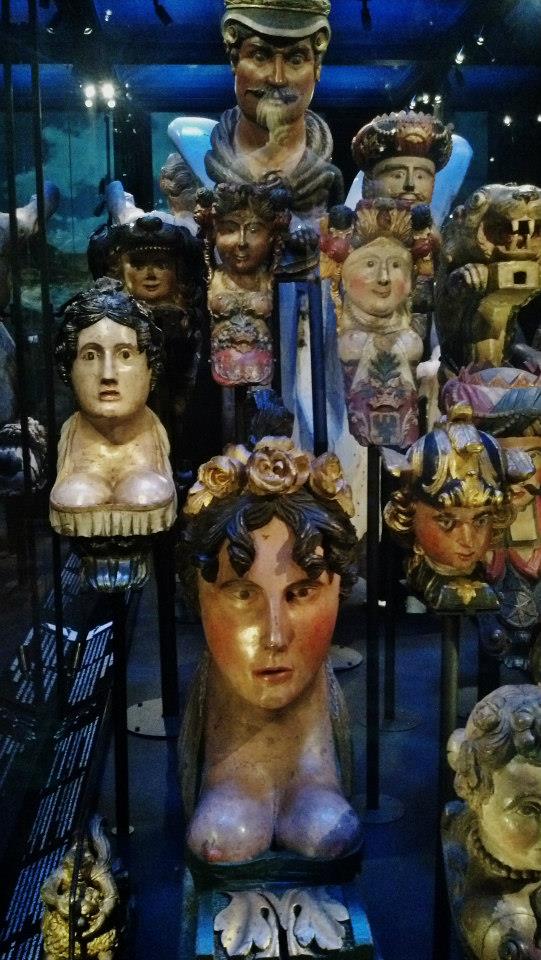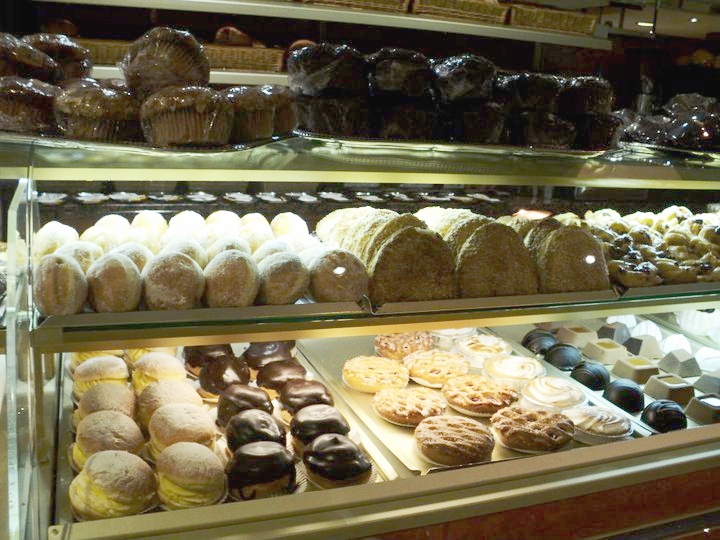Amsterdam Enchantments: The Weird, Whimsical, and Wonderful
Amsterdam has a very special place in my heart. I love its pedestrian nature, where foot traffic has the right of way. And its massive population of house boats, cluttering the sides of every narrow canal. I can close my eyes and hear the familiar sounds of church bells echoing down those canals in the morning, and the quieter sound of bicycle bells ringing up the streets during the busier hours. I've had the pleasure to visit over a dozen times, either on my own, with family, friends, or my husband, and there is no city where I feel more at home.
When I first started visiting Amsterdam, I stayed in a number of hotels around the city. The American Hotel on the Ledseplein, Park Plaza Victoria, NH Grand Krasnapolsky, and the iconic Hotel de L'Europe have all been bases for me. Once I also opted for a hotel that I totally forgot the name of, solely on the basis that it had a waterbed, which I had always wanted to try! Over time, my stays in this city got longer and longer. What was once a few day jaunt, became a week long visit, and then several week extended stays, which led me to look into longer term options. My husband and I started renting houseboats, which is the perfect combination of quirk and nostalgia to fit my personal tastes. Houseboat living may not be for everyone, and it certainly has its complications, but for us, it was our slice of Netherlands heaven.
There is no shortage of information about Amsterdam and its main attractions. Its Red Light District, the Rijkmuseum, Anne Frank House, Van Gogh Museum, Rembrandt's House, and the major breweries all get their due coverage. I'd like to introduce you to some of the lesser known, hidden gems that enchanted me and made Amsterdam a place worth revisiting time and again.
HIDDEN GARDENS
One of the most interesting aspects of Amsterdam architecture are hidden courtyards called hofjes. The most famous and easy to find Amsterdam hofje is the Begijnhof. There are a few entrances through decorative, yet unassuming doors, but once you open them, you feel instantly transported. If you ever wanted to be Mary Lennox discovering the secret garden, this is your chance. The Begijnhof is right in the heart of the city, not far from Dam Square. Inside, you will find some of the oldest homes in Amsterdam, and two small churches. It was founded in the middle ages and boasts one of two wooden homes remaining in the city.
Just outside the Begijnhof, the old bookshops on Spui are neat to cruise. Many hofjes are open to the public and can be seen by visitors. Just walk into the courtyards and take a look, but be quiet and respectful of the residents that live around them. If you choose to explore more hofjes, the Jordaan area is the best place to find a lot of them in minimal time. Some of the best include Claes Claesz Hofje, Karthuizerhof and Bossche Hofje/Raepenhofje. You can find a great map of the Jordaan hofjes here: https://www.jordaanweb.com/HTMLengels/jordaankaarthofjes.htm
VONDELPARK
The Vondelpark has something for everyone. There are several dining spots, including a chic restaurant, live music venues, idyllic duck ponds, bike paths, lush flower gardens and a ton of playgrounds. Ones that adults can get on board with as well. You'll see artists and performers practicing their crafts, families out for a bike ride, and groups of students enjoying a moment of peace after their school day. Just walk, or pedal and enjoy the hidden corners that you can find.
The park was opened in 1865 and originally named Nieuwe Park, but later renamed to Vondelpark, after the popular 17th-century playwright and poet Joost van den Vondel. It now gets over 10 million visits per year.
One of its main attractions is The Vondelpark Openluchttheater, an open-air theatre featuring live shows from June until August. These range from classical, pop and world music to dance performances, musical theatre, and cabaret. Admission is free, but donations are appreciated.
THE NICHE MUSEUMS
The big museums here are well known, my favorite of the biggies being the Van Gogh Museum. But Amsterdam offers a wide array of small museums of curiosities that bring fourth a ton of character. My favorite museum is the Scheepvaart, their maritime museum. Its easily spotted by its giant masted ship floating our front. An exact copy of a famous VOC ship. The exhibitions are stunning and very interactive for visitors of all ages. There are galleries featuring maps, globes, tools of navigation and ship ornaments and an up close look at the life of a whale.Then there is Tassenmuseum, or handbag museum, that is an extremely charming and well curated look at the evolution of purses, both practical and fashionable. The Electric Ladyland Museum of Fluorescent Art is also small, and quirky, devoted to celebrating art, minerals, and man made items that fluoresce under ultraviolet light. Amsterdam is the houseboat capital of the world and they do have a Houseboat Museum that you can go inside and see this way of life. Also,The Hash, Marijuana and Hemp Museum and The Sexmuseum are just as fun as they sound and they are open at night to give you a memorable evening on the town. A recent addition is Micropia, the world's first zoo for microbes that I have yet to visit. It celebrates the disgusting, elegant, horrible and wonderful things living on, in and around us. Then a favorite for families is NEMO, their hands on science museum. It looks like a giant green ship rising from the water in the harbor. There are plenty of hands on exhibits for kids to experiment with gravity, inertia, acceleration and simple machines. There are fun photo spots where you can age yourself or see what your future kids would look like. Then there are a few exhibits to help educate older kids on their bodies, including an exhibit on how spiders build webs while on different drugs, a collection of wooden dolls in various sexual positions, and a peep show style curtained booth that plays a looped video inside of various peoples faces during orgasms. NEMO is one of the best spots for fun and laughs on a rainy day.
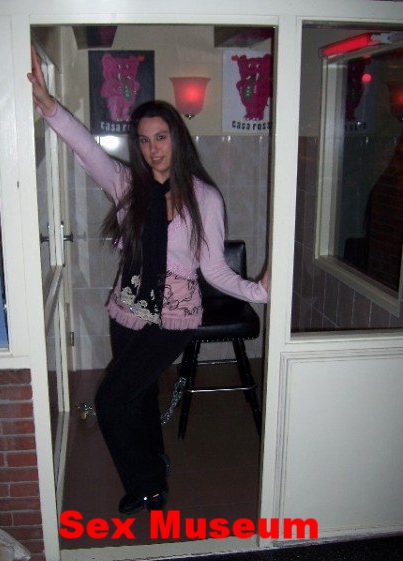
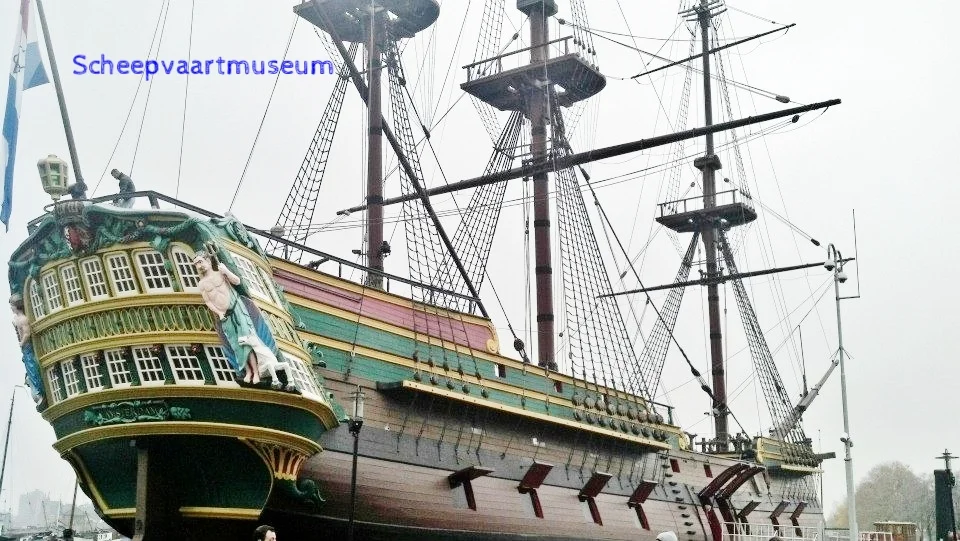
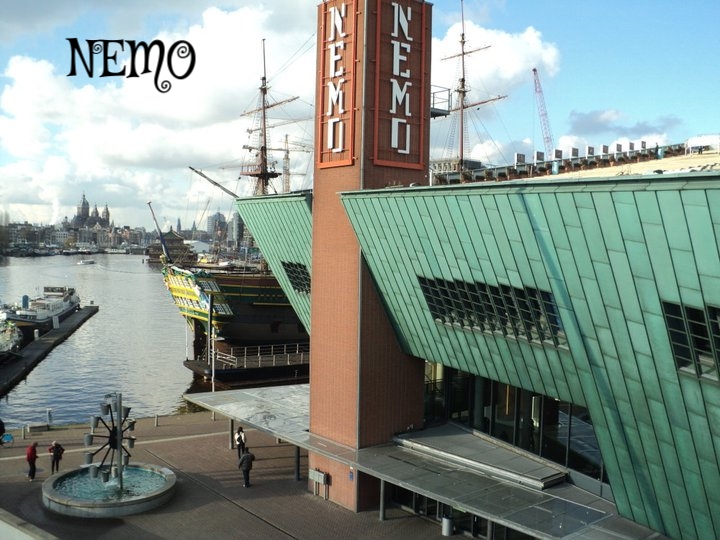
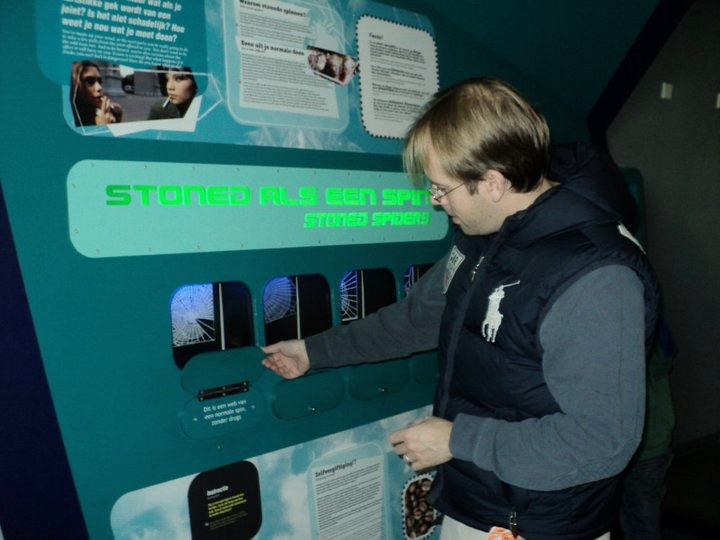
BOUTIQUE SHOPPING
For me, the best shopping is around Kaalverstraat, Leidsestraat and what is known as the 9 Streets (De 9 Straatjes). Here you will find a ton of boutiques featuring up and coming Dutch designers, mixed in with some modern European favorites like Desigual and Karen Millen. They are popular thoroughfares for their narrow buildings with unique exteriors and colorful window displays. A lot of guide books suggest PC Hoofstraat, but unless you are looking for high end luxury goods easily found in the US, this won't be the most exciting place for you. Be sure check out Spuistraat, Harlameerstraat, Heiligeweg, and Nieuwendijk, as well as the Floating Flower Market off of Koningsplein.
OUTDOOR MARKETS
My favorite is probably the best known. The floating flower market, or Bloemenmarkt. Right in the heart of the city, it is always busy, but I have never seen anything like it anywhere else. I have made sure to stop here every time I have been to Amsterdam and I always look for tulip variations that are new to me to buy a bouquet for my accomodations. The Albert Cuyp Market is over 100 years old and features an eclectic mix of tag sale or flea market items, food, and hand made products. It is open every day, except Sundays and often closes early in the winter. Art Plein Spui Market is the market for the arts, showcasing work by local professional artists, accompanied by live music. It is on Sunday's only and does not operate in winter. Also on Spui, from Monday through Saturday is the Boekenmarkt. It is small, but a good opportunity to find books, cards, maps and photography. I absolutely love the Farmer's Market on Noordermarkt on Saturdays. You can try samples at many of the stalls and order up some of the freshest hand squeezed juices to enjoy during your stroll. This is not the place to find things to bring back home, but it is the perfect place to pick up supplies for a Vondelpark picnic.
Keukenhof
March to May is tulip season in Holland. It makes for a remarkable sight when coming in for a landing at Schipol airport. The crown jewel is The Keukenhof, the gardens are a sort of open air museum where you can see every variety of tulip imaginable, arranged in all their glory. It features a windmill, an exposition about tulips and a number of mouth watering food carts. The honey ham sandwich one is a do not miss. The Keukenhof is about 45 minutes outside the city center. You can get there by taxi, bus, or shared shuttle. There are also escorted tours that visit it, often in conjunction with a visit to Aalsmeer, the largest flower auction in the world.
LIFE ON THE WATER
One of the best ways to see Amsterdam is from the water. You can get great photos during the day, or see the city illuminated at night. There are plenty of boat tours in every imaginable language, for just a few dollars. Upgraded versions include dinner cruises or wine and cheese cruises. It is possible to charter private boats, if you prefer a bit of intimacy. There are also several places in the city where you could pick up paddleboats that rent by the half hour. These are somewhat limited in where they can go, and clearly you have to do all the work, but there is huge amount of fun when you are choosing your own adventure. Also on the water you will find the Boatel, your chance to stay in a floating hotel. And Sea Palace, a floating Chinese restaurant, which is admit is kitschy but I absolutely love it and always have a great time when dining there. Finally, De Poezenboot is the worlds only aquatic cat sanctuary. Here, visitors are encouraged to pet and play with its furry residents.
RIJSTAFFEL
Rijstaffel (rice table) is a culinary by-product of Dutch colonialism in Indonesia. The empire stretched for more than three centuries, formally ceasing in 1949. But the Dutch brought home this adopted way of eating, developing an undying affection for new spices and delicacies such as satay, stir-fry, and rijstaffel, the art of serving many small Indonesian dishes, placed around a gigantic globe of rice. This tradition is relatively unique to the Netherlands, where it’s considered nearly as indigenous as stamppot. The spices waft into the streets, beckoning you in wondering what could possibly create those scents. The servers cram every inch of your table with 10-40 small plates. Like Indonesian tapas. These consist of a variety of meats, vegetables, and condiments, like sambals and pickled dishes. Each makes for an interesting pairing with the rice. My favorite restaurants for Rijstaffel are Sampurna and Tempo Doeloe.
FAST FOOD
Dutch fast food puts American fast food to shame. There is a chain of automats around the city called FEBO. The food out of them is surprisingly good and very popular with the locals. Beef croquette (rundvleeskroket), Saté croquette (satekroket), Chicken stick (kipcorn) and Cheese soufflé (kaassoufflé) are my favorites that pop out of these magical walls of plenty. FEBO aside, the city is littered with Belgian style frites stands, and Poffertjes stands which are teeny tiny pancakes that are hard to stop eating once you start. Around the winter holidays, Oliebollen stations also pop up in the main squares selling dense balls of powdered sugar covered dough, often packed with raisins or apples. Also prevalent around the city are small bakeries which generally display waffles, croissants and fruit tarts in giant glass streetfront cases. There are usually seating areas where you can relax and enjoy your snack at a leisurely pace, but the bulk of their crowd is passerbyers grabbing it to go. Banketbakkerij Lanskroon, Croissanterie Outmayer, Rene's Croissanterie and Kwekkeboom Patisserie are some of my personal favorites. Some of these stay open very late, so you'll never have to try hard to find late night snacks. Admittedly, I have probably consumed my weight in waffles topped with whipped cream and berries across my many visits.
THE FESTIVALS
This city knows how to throw an epic celebration. As if Spring wasn't already cool enough with the Keukenhof, there is an annual flower parade, Bloemencorso, that takes place every April. It is a spectacle of floral floats that follow a 40km route between Noordwijk and Haarlem. Later in April is Koninginnedag, or Kings Day. In this celebration, every body wears orange to celebrate the birthday of the queen or king, but really its just one giant excuse for everyone to party their faces off. There are parades, live music everywhere, decorates barges floating through the canals and orange everything. Many Dutch residents return home for this annual holiday, and many tourists descend, so be prepared for huge crowds. Another popular event is the Cannabis Cup, where various coffeehouses compete to win for the best strains in a variety of categories. I can't really recommend this event because the giant tourist crowd it attracts tend to be young, loud and obnoxious and the normally cozy coffeeshops are suddenly obscenely crowded. You can pay a mini fortune to be a judge, but even then you will pay for your samples and have to deal with crowds. In November, Sinterklaas, Dutch Santa, arrives into the harbor on a steamboat from Spain. That’s right, this Old Saint Nick lives in Spain for most of the year. No freezing cold North Pole or flying reindeer for this guy.
It is quite a spectacle to watch the boats pull in, and see Sinterklaas on his giant white horse, followed by his massive entourage embark on their huge welcome parade. Candy is everywhere. It is handed out by participants, tossed by the sackload from floats and even blown out of giant cannons. The parade winds through the city streets, heralding in the holiday season. His sidekicks, Zwarte Pieten, keep a record of all the things naughty children have done and they could end up being put in a sack to be sent back to Spain to learn how to behave. Or to serve Sinterklaas. It is not entirely clear. So beware if you think you may be on a naughty list.
Once Sinterklaas rolls in, the city is transformed into a winter wonderland. Christmas markets, ice skating rinks, cider houses and holiday events pop up on virtually every public square and stay there until after the new year. Also in December is the Light Festival that runs until January. Artists, architects and light designers from all over the world bring their light artworks and installations alive during the festival to adorn two distinct routes. This is a magical time to visit the Netherlands.
MARIONETTE THEATER
The Amsterdam Marionette Theater is one of the worlds greatest Marionette Theaters. It was founded in 1985 by Hendrik Bonneur. It has its own unique form of puppetry combining opera, music and elaborate puppets in their very own small theater near Nieuwmarkt. The silk and velvet costumes are as intricate as any you would find at a top opera house and its small core of performers are trained in multiple disciplines. In addition to performances in Amsterdam, they travel the world, attracting young and old to their interpretations of the classics. They also do group events such as opera dinners and opera high teas and offer tours of their studio. Unfortunately, they recently lost a crucial government subsidy for the arts and are currently in financial danger. Please visit them on your next trip and help to keep this masterpiece alive.
HORTUS BOTANICUS
One of the oldest Botanical Gardens in Europe, it was founded in order to combat the bubonic plague. Today it plays host to an abundance of rare flora and offers a welcome respite from the bustle of the city. Originally known as Hortus Medicus, the garden grew medicinal herbs brought over by the Dutch East India Company. It was fully stocked with rare and exotic plants never before seen in this part of the world at the time. Some of its most prized curiosities include a cactus dating back to the Roman era and a water lily that is over 150 years old.
BOOK LOVERS HEAVEN
For us bibliophiles, Amsterdam has a handful of must stops. Cuypers Library is the oldest and largest art history library in the Netherlands and its expansive reading room is jaw dropping. It is housed inside the Rijkmuseum, though it is often overlooked by the throngs of tourists that visit the museums collections. It is open to the public, and visitors will be delighted by its spiral staircase, arched windows and towering terraces lined with thousands of books. Bibliotheca Philosophica Hermetica, also called the Ritman Library, is housed inside the Embassy of the Free Mind. This vast collection is a goldmine of manuscripts and books on ancient mysticism, religion, and philosophy. 4,500 works in their collection were printed before the 1800s. One of its crown jewels is the first illustrated edition of Dante’s La Divina Commedia from 1481. This place inspired Dan Brown's The DaVinci Code, and its definitely worth a stop for book fans. There is a wonderful collection of bookshops around Spui that have survived the ages. Spend an afternoon browsing and support these small businesses that remind us how good books smell and feel in our hands in this digital era.
The Coffeeshops
For many foreigners, one of the cities major attractions are its coffeeshops. For a long time, Amsterdam was one of the only places you could go to light up legally. When visiting a coffeeshop, be sure to order a beverage, leave a tip, keep your volume to a minimum and ask permission if you would like to take a photo. Coffeeshops are often quiet and laid back and range in aesthetics from ultra modern, or over the top themes to psychedelic chill out zones and dark hole in the wall type places. They all have a menu and many offer smoking alternatives in the form of baked goods like brownies, cookies or space cake. Some also offer space shakes or herbal infused teas, if you prefer to drink it.
Not all coffeeshops are created equal. Though they do offer a fun experience and plenty of take home merchandise, I'd recommend avoiding tourist staples such as the Bulldog and Bluebird and trying places like Greenhouse, Abarax, Barney's, Katsu, La Tertulia, and Dampkring instead. Dolphins and Grey Area are also worth a stop for the atmosphere and decor. Most places offer a choice of bags or pre rolled joints, and some have an array of smoking apparatuses like vaporizers and waterpipes that customers can use. Coffeeshops take great pride in their custom strains, even entering them in competitions, so don't be afraid to ask questions to learn a bit about what you are purchasing.
EASY DAY TRIPS
For extended visits to Amsterdam, there is tons to do outside the city borders. Day trips to Rotterdam, The Hague, Delft, Edam, Haarlem and Volendam are within easy reach and are serviced by a number of large or small group tour operators. Many places are also accessible by train. A few unique places to visit are Madurodam, an open air museum full of models of Holland's top attractions. Zaanse Schans, another kind of open air museum where visitors can learn about local Dutch crafts like wooden shoe making and cheese making, visit working windmills and explore a traditional village sat upon dikes and polders. Further afield, but worth mentioning is Efteling, a fantasy theme amusement park. It is twice as large as the original Disneyland and has been in operation since the 1950's, evolving to be a major attraction over the decades. It has a popular hotel with themed rooms, a bunch of original dark rides. Best of all, it boasts a truly incredible fairy tale forest. It is roughly an hour from Amsterdam by car, or two using public transportation.
THE ROYAL PALACE
Pretty much every tourist that passes through Amsterdam marvels at the exterior of Koninklijk Paleis, dominating Dam square. But surprisingly few venture inside, and it is one of the most interesting pieces of Dutch history to be discovered. The palace was built as a city hall during the 17th century, the Dutch Golden. It has served as the royal palace of King Louis Napoleon and later of the Dutch Royal House. Today, it is one of the three palaces in the Netherlands that remain at disposal for the royal family to use. The Palace plays a major role during state visits, and other celebrations and royal occasions, but most days it is open to the general public. Its impossible not to be impressed by its heart, the Citizen’s Hall. It boasts Sculptures and paintings by prestigious Dutch artists such as Rembrandt’s students, Flinck and Bol. Their contributions tell the story of Amsterdam as the center of the universe. The Dutch were very confident at the start of this era, and all the marble and gold scream it loudly. Atlas towers over the hallway, bearing the load of the heavens upon his shoulders. The theory is that should Atlas ever drop the heavens, Amsterdam too will fall. Generations of Amsterdammers seriously warned their children of this omen. He overlooks the giant inlaid maps in the marble floors, which are based on the world maps and star charts by the family Blaeu, Amersterdams best known cartographers of the era.
After years of very regular visits, becoming a mother and the expenses that entails have prevented me from returning. I miss my home away from home and look forward to bringing my daughter some day and watching her discover all of this through new eyes. Until then, put my favorite city at the top of your list and let me know what unusual discoveries you are rewarded with during your travels.



